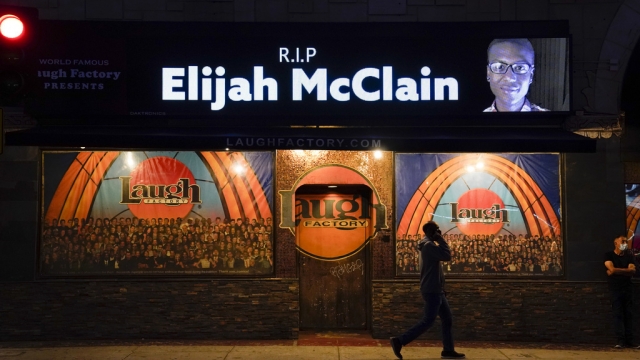The latest criminal trial for the death of Elijah McClain has higher stakes than just the defendants involved.
Some onlookers believe it could set a precedent in how medical staff members like paramedics, nurses and others do their jobs and are held accountable for the jobs they do.
Aurora Fire Department paramedics Jeremy Cooper and Lt. Peter Cichuniec face homicide and manslaughter charges for McClain's death. Cooper and Cichuniec have pleaded not guilty.
"You cannot treat human beings like cattle," said Sheenen McClain, Elijiah's mother.
Sheenen McClain stated in January, when the defendants were arraigned, that the paramedics treated her son like an animal.
"They could have done their job the right way, instead of being associated or made into accomplices of my son's murder," Sheenen said.
Prosecutors allege the use of the sedative drug ketamine ultimately led to McClain's death and the paramedics who used it are criminally responsible.
Also, officers facing trial for McClain's death tried to shift blame in court to the paramedics on the scene.
SEE MORE: Trial begins for paramedics who used ketamine on Elijah McClain
Edie Brous, who calls herself a "nurse attorney," specializes in representing medical professionals.
"When does the mistake become a crime? It totally differs by state and it differs by politics, unfortunately," said Brous. "I do think that the prosecutors have become more aggressive at treating human error as carelessness and not differentiating between human error and actual negligence at the criminal level."
Medical staff across the country are facing similar charges. Two Illinois paramedics are facing first degree murder charges after strapping a patient face down on a stretcher.
A California nurse was charged with involuntary manslaughter after seven officers held down a suspect while she carried out a blood draw.
"I really wonder how easy the prosecutors think it is for nurses to try to override police," said Brous.
A registered nurse herself, Brous believes an uptick in these kinds of cases could ultimately put patients in more danger, not less.
"The only way that you can prevent something that's happened from recurring is to do a really good root cause analysis of what happened. And you can't do that kind of detailed analysis on things unless they're reported. And they're not going to be reported in punitive systems. Nurses are scared," she said.
An autopsy of McClain found that he died of "complications of ketamine administration following forcible restraint," and that the ketamine dose he received was "higher than recommended for his weight."
Trending stories at Scrippsnews.com




